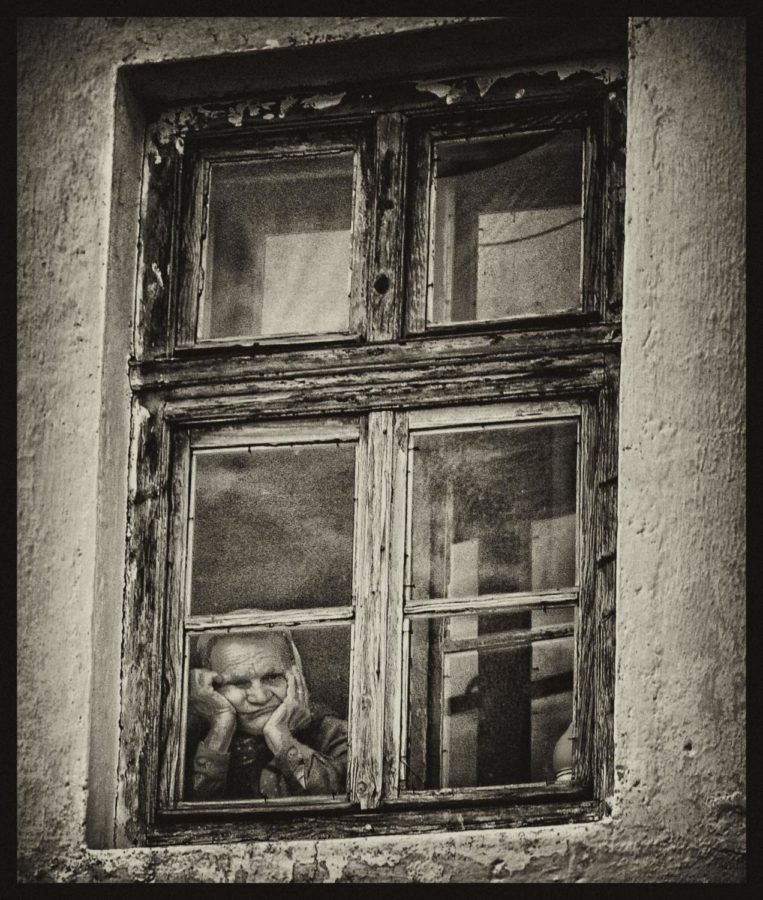Vieira: System entanglements
January 26, 2021
The United States is amid a mental health crisis, and teens are more miserable than ever. An estimated 26 percent of Americans ages 18 and older — about one in four adults — suffer from a diagnosable mental disorder. When 31 percent of the population experiences symptoms of anxiety or depression and 11 percent is seriously considering suicide, this is a hard topic to ignore.
But why is this lockdown being so damaging to us and why do our bodies get impacted so harshly by these social distancing guidelines? Karin Brulliard, a reporter for The Washington Post, helps shed some light on this dilemma in her latest article. According to Brulliard, ”Social distancing is so hard because it’s contrary to human nature.”
We are social beings. That has been a well-known fact for quite some time now; since the very beginning of times, we have heavily relied on collaborating with others in order to survive. It is in our genes. We cooperate, divide labor and share goods among each other, unlike any other mammals in the wild. “If you look around yourself right now, there’s probably nothing in sight that you yourself made or produced for your own use,” said Alan Fiske, a psychological anthropologist at UCLA. “None of us are able to do individually all the things that we need. But by each of us doing a specialized job, then we function beautifully.”
But what about those whose freedom have been taken away and are now forced to live in confinement? Prison inmates are a prime example of these circumstances and are not exempt from the mental health quandary. However, the system does attempt to aid those in need with, for example, implementations like the Eighth Amendment.
The cruel and unusual clause was added to prohibit “barbaric” methods of punishment, like torture, banning disciplinary practices that are disproportionate to the offense. Deliberate indifference to mental health needs could get a prison official in great trouble — since mental health is a fundamental right inmates are entitled to by the U.S. Constitution.
The Eighth Amendment was enacted to help fight a war against the deteriorating mental health within our domestic prison system and jails, as treatment is essential for the rehabilitation and reform of the incarcerated individual; lack of treatment could lead to internalized frustration and an overall jeopardization of the entire process of societal reintegration.
The U.S. Correctional System functions and the nationwide mental health crisis are inarguably tied to one another, especially when 64 percent of jail inmates, 54 percent of state prisoners and 45 percent of federal prisoners report mental health concerns. “Part of what’s really swelled our jail and prison population, especially our jail population, is our inability to deal with the mental health crisis that we’re facing in this country,” said June Tangney, who has a doctorate in psychology and is a professor at George Mason University.
Perhaps if we would have taken the constant disharmony between these two systems into account, we would be in a different place today. For instance, during the 1960s, when psychology was once again subject to criticism, the second wave of the deinstitutionalization movement took place. The campaign was a brand-new government policy that shut down many facilities for those who were mentally disturbed and moved them out of those state-run care facilities.
Nonetheless, due to the lack of resources within the community, jail was the only option left for these patients. Between 1980 and 2000, there was a 7 percent increase in the total prison population, according to The Sentencing Project, an alternative yet highly respectable nonprofit research organization. The analysts also believe that this percentage represents the 40,000–72,000 people who would have been placed in mental health hospitals in the past.
It should be noted that these implementations were the mere product of a society feeding into a toxic system, one in which those who are deemed different than the established “normality” are ostracized and ridiculed.
Once we are more accepting of the fact that there is no blueprint for humankind, we will finally understand that differences between us allow us to be so rich in culture and ideals.
In Siberian culture, those who had a mental or intellectual disability were deemed as a different kind of person, who embodied a certain purity, simply not found in the hearth of “regular” people. Psychology is widely undermined largely because of the immense number of variables it can embody, yet, it is our civil duty to fight for fairness within our mental health rights.

















